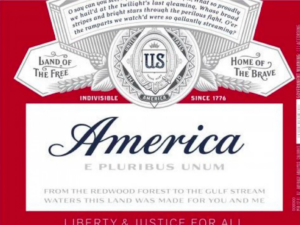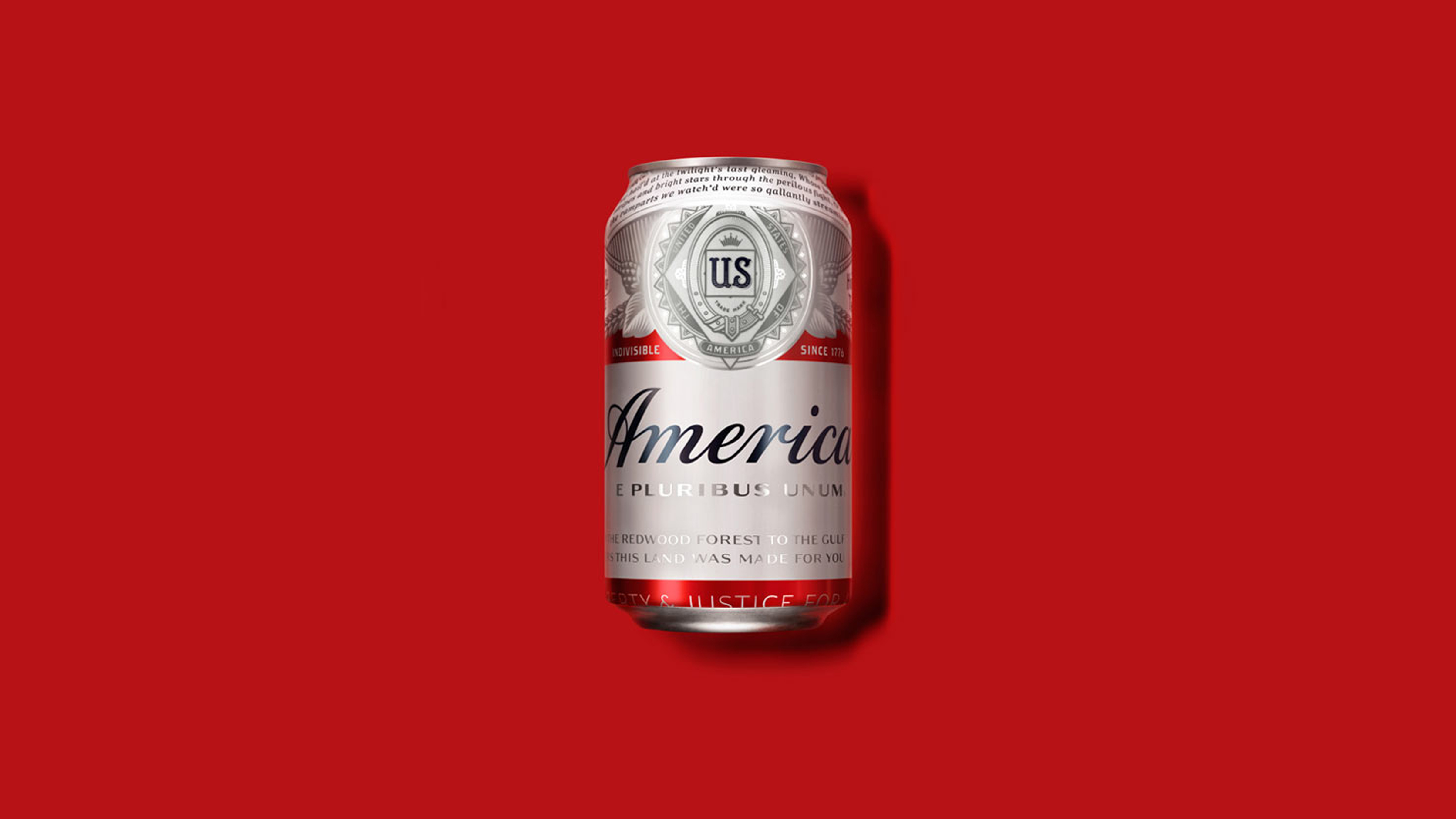Budweiser’s a beer that’s been very popular for a long time. It was first brought into the world in 1876 by a German immigrant named Adolphus Busch who settled smack-dab in the middle of his adopted country in St. Louis and began brewing the lager that would essentially define American beermaking. And if you’re the kind of beer snob who found themselves in the crosshairs of Anheuser-Busch InBev’s profoundly obnoxious “proud to be macro” campaign, you might be surprised to know that—really!—that flagship beer is actually not half bad. Maybe a third bad, but given the economics of scale, a third bad for a beer that big is pretty good.
You might be tempted to say that “a third bad” would be a pretty apt descriptor of the country Adolphus Busch elected to make his home, too, and perhaps you’d be right; roughly 33% of Americans still believe President Obama is a secret Muslim, after all. But like the beer itself, the United States isn’t nearly as bad as its detractors claim, even if it’s not as good as its popularity might suggest.
So that might be why Budweiser has announced that it will be adopting the name of its home country. That’s right: until November, when the US may well cease to exist, Budweiser will be called “America.” I’ll pause here as you instinctively say “Merica” to yourself.
As Fast Co. Design points out, Budweiser has routinely switched up its marketing during the summer as a reflection of its Americanness (Americanity?); crushing those glory-wrapped summer cans probably counts as third-degree flag desecration in some states. But the name change represents a new level of patriotic association for the brand. And, sure, it’s kinda funny: in our nationalistic age, which is now fomenting into a raging blackout, you couldn’t script a better satire of American consumerism.

But is it a satire worth telling anymore? While it seems reasonable that the overwhelming majority of America drinkers will pick it up in earnest, there’s certainly some degree of irony at play in Budweiser’s strategy (you don’t work at the kind of ad agency that a brand like Bud hires without developing a very strong sense of irony), but it’s of the uncomfortable sort practiced by the bros who wear “TWO-TIME WORLD WAR CHAMPIONS” tank tops to your local music festival. Which is to say that, at worst, the joke part of the name change stems from the same kidding-on-the-square impulse that mocks the muscular Bush-era US self-image for its absurdity without being totally willing to relinquish it. It is Toby Keith’s “The Ugly American” sung ironically by a drunken exchange student in the Paris metro. It’s patriotism as performance, which is only ever kinda funny, and which is ultimately insulting to the people who actually do believe in this country in great earnest.
I’m overreacting a little bit, I know. Maybe more than a little bit. But for millions of people, discovering that the beer they love has suddenly been renamed for the country they love must be extraordinarily cool. And I’m having trouble convincing myself that that emotion is worthy of being mocked; after all, our chummy neighbors to the north aren’t scared to down a Molson Canadian. What that must be like, to enjoy an uncomplicated appreciation of the United States and a devotion to a certain idea of what it is, I have no idea (and obviously such a point of view is worthy of critique, as is abundantly clear). Though if the political environment currently polluting our cultural water supply is any indication, maybe it’s just as impossible to sit back and crack open a can of America and enjoy it without thinking about how annoying the whole scene would look to some big-city liberal. And that seems like a state of captivity, too. For a country whose national ethos centers around individualism, we are surprisingly committed to ordering ourselves around the reaction of others, which is about as far from true self-sufficiency as you can get.
For a country whose national ethos centers around individualism, we are surprisingly committed to ordering ourselves around the reaction of others, which is about as far from true self-sufficiency as you can get.
Am I reading too much into the gimmicky rebranding of a so-so beer? Yes. Well, maybe. If the history of the twentieth century has taught us anything, it’s that advertising is deeply meaningful; its small-c conservative nature means that it rarely gambles, and that every move it makes is suffused with meaning that’s waiting to be read. There’s something quietly beautiful about an immigrant beermaker’s lager being so deeply associated with the United States in this particular political context, but that doesn’t seem to be part of the way Budweiser wants to tell their story. Instead, renaming their beer “America” doubles down on the fuck-you alienation that engendered the “proud to be macro” campaign, and it further exposes our own cynicism about our country.
Unless, of course, they’re naming it after the Prince song. In which case, get me to St. Louis.







